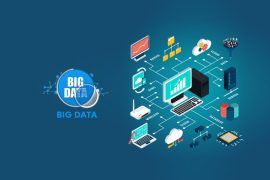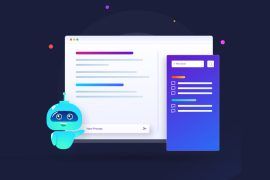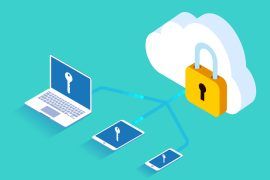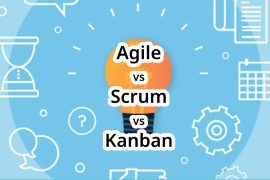The Covid-19 pandemic did not just have an impact on the healthcare industry but also on all the other types of industries. With lockdowns in place, businesses had to quickly come up with solutions to ensure that they are meeting their customers’ demands. They had to adapt to new technologies that could help them scale their business while maintaining excellent customer relationships. Prior to the pandemic, businesses had successful campaigns in place, but during the pandemic, with no face-to-face contacts, it became crucial for them to enhance the way they interacted and engaged with their clients and customers.
All of this resulted in a boom in the digital world and the majority of the brands today have built a strong online presence to ensure that they are able to cater to their customers round-the-clock. Though building and maintaining this online presence is vital, it is not enough just to build your digital footprint. Customers today expect more of a personalized experience and this need can be seen in the post-Covid world as well. Since customers are now used to the digital ways of working, businesses need to ensure that they are able to provide highly personalized customer experiences and one of the best ways to do so is through Intelligent Virtual Assistants (IVAs).
In this post, we will take a look at what exactly is an IVA, how it works, how businesses can use IVA to improve their customer service, and more!
Table of Contents
What is an Intelligent Virtual Assistant?
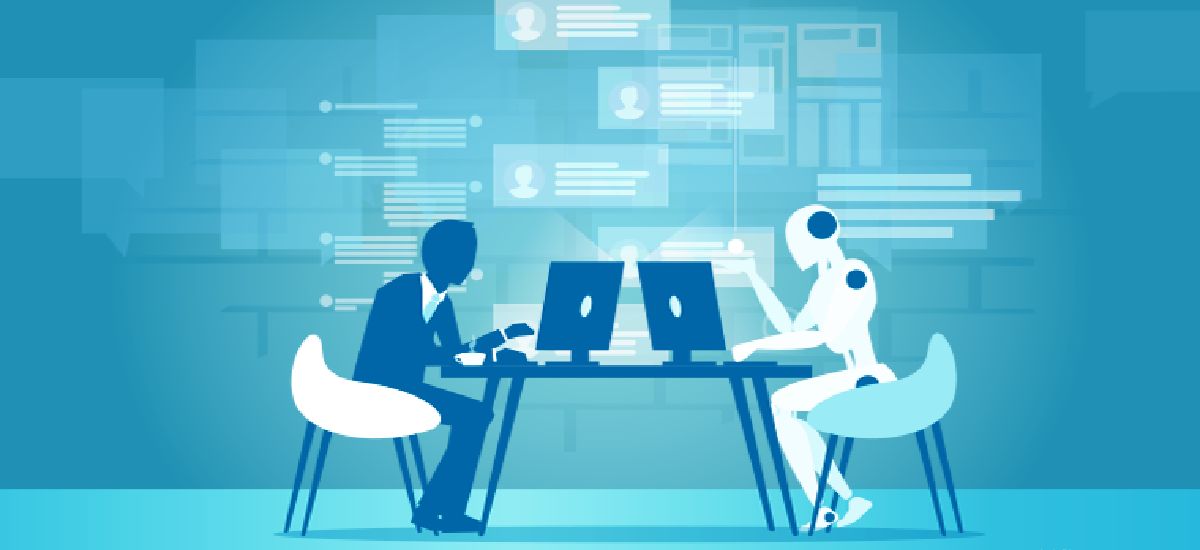
Artificial Intelligence is everywhere today, and it is slowly gaining momentum across different types of industries. Using AI has already enabled several forward-looking businesses to enhance their operations and make them more cost-effective. One such offering of artificial intelligence is the Intelligent Virtual Assistant. Also known as virtual agents, IVAs are AI-powered software that is specifically designed to interact with customers in a human-like manner. By adopting such advanced technology, businesses can ensure that they are providing a world-class, highly personalized customer experience.
How does an Intelligent Virtual Assistant work?
In short, IVAs are smart chatbots equipped with artificial intelligence and virtual assistant functionalities. They have the ability to understand and perform human-like interactions as well as learn from each interaction. These intelligent virtual assistants use various AI technologies, such as Natural Language Processing (NLP), Natural Language Understanding (NLU), Machine Learning (ML), Automated Speech Recognition (ASR), Text To Speech (TTS), and dialog management.
There are two types of IVAs – personal and professional. You must be familiar with Amazon’s Alexa, Google’s Home Assistant, Apple’s Siri, etc. These are nothing but your personal IVAs through which you can perform a wide range of personal functions like setting alarms, making calls, playing music, etc. Professional IVAs are the ones used by businesses to conduct automated customer interactions. With IVAs in place, businesses can provide 24/7, round-the-clock customer support. By taking the responsibility of a major chunk of the repetitive tasks, businesses can ensure that their human agents are involved in more productive tasks.
Traditionally, most companies use a combination of IVAs and human agents as they cannot completely rely on automated machines and software. But, by adopting IVAs, they can not only ensure exceptional customer service but also that their human agents are not overburdened.
How Does an Intelligent Virtual Assistant Work?
Now that you know what exactly Intelligent Virtual Assistants are, let’s take a look at how these automated services work. As mentioned above, the Intelligent Virtual Assistants use a combination of various AI technologies to understand the needs of the customers. Each of these technologies, whether it is NLP, NLU, or deep learning plays a crucial role in how the IVAs work and perform. For example, deep learning, which is a type of machine learning, enables IVAs to retain contextual information and improve their performance with every interaction. Similarly, NLP helps IVAs to even understand questions and answers which they haven’t been specifically programmed to understand. Using the various subsets of NLP, such as NLU, speech-to-text and vice versa, and transcription, IVAs can find and understand the meanings of all the written and oral communication. The USP of an intelligent virtual agent lies in the fact that it can comprehend the meaning of the conversations even without having any predefined syntax.
By leveraging these various AI technologies, IVAs can understand various accents and idioms, build their vocabulary, and provide the required support to the customers. It also gives the customers the experience of interacting with a live customer service support team member. To summarize, with the help of these technologies, IVAs can broadly understand:
- Speech
- Free text
- Multiple choice answers
However, it is not sufficient just to have all these AI technologies in place. Irrespective of how sophisticated your AI technology is, IVAs do not have the capability to predict what your customer wants, which is why the data used by your IVA is absolutely critical. Several businesses depend on the regular industry-standard data sets; however, the best option is to use your company’s historical data. Customer relationship management or CRM as it is popularly known as has become a part and parcel of every company. This CRM stores all your past customer support conversations which can be used as the primary data for your IVA. Using the AI technologies, you can identify the common topics and intent, allowing the IVA to understand what your customers are looking for majorly, and create appropriate answers for them.
Depending on this customer historical data, rather than pre-built data sets will allow you to better understand what your customers want and customize your IVAs accordingly. As new tools and technologies enter the market, they help in making your IVAs more efficient and intelligent by allowing them to identify and understand new intents.
How is an Intelligent Virtual Assistant Different from Chatbots?
There is a common misconception that intelligent virtual assistants and chatbots are the same; however, this is not true. Though their function and use may be similar, there are few differences between this software. Apart from IVAs being far more sophisticated than chatbots, there are three major differences:
- The first difference between the two is how they ‘speak’ to the customers. IVAs use natural language processing and neural networks to identify what the customer wants and provide an answer accordingly, whereas chatbots are set up using rule-based algorithms which means that they can identify specific keywords or some predefined questions and answer those questions. So, when a customer puts in their question, IVAs, which are more sophisticated, can understand misspelled words, synonyms, plural, casual language, etc., allowing them to provide precise answers even to those questions for which they haven’t been specifically programmed.
- The next difference is the way these IVAs and chatbots ‘answer’ the customer queries. In order to get the right answer from the chatbots, customers need to put in the exact question. The chatbots which ideally work as a question-and-answer machine then either provide the scripted answer or directs the customer to FAQ pages/knowledge base. In case the chatbots are unable to provide immediate assistance, they have the capability to direct the question toward a human agent. IVAs however, are more capable than chatbots and have the ability to easily understand and decipher not just what the customer asks, but also the intent behind the queries. By using historical data rather than pre-built datasets, IVAs can respond naturally and provide more personalized answers. Similar to chatbots, they can also route the customers to human agents if required.
- The final difference between chatbots and IVAs in the way this software ‘learns’. Since chatbots are rule-based, the only way for them to ‘learn’ more is when more human rules are built into their systems. Chatbots do not have the capability to retain any information or learn to answer questions on their own. IVAs on the other hand are well equipped to learn on their own with the help of deep learning. So, the more data you provide, the more efficient your IVA becomes by recognizing the needs of the customers and providing them with precise answers. Over time, the IVAs become better at recognizing customer intent, thus, enabling them to handle more and more complex queries.
How are Businesses Using Intelligent Virtual Assistants to Improve Customer Service?
What started out as virtual personal assistants have today become a key platform for businesses to improve their customer service. Humans tend to remember those who help them as accurately as possible when required, and IVAs are the perfect software that can carry out human-like conversations, 24/7, round-the-clock. Whether you are in the business of providing any service or selling products, the bottom line always depends on how satisfied your customers are, and by ensuring that they provide prompt answers and assistance, businesses can ensure customer retention and loyalty.
Here are the top four ways in which businesses have benefitted by introducing intelligent virtual agents in their workspace.
- The scalability of IVAs is one of its key features which ensures that it remains efficient without compromising on its offerings. For example, IVAs that can offer exceptional personalized customer service to 100 customers at the same time can easily scale up to providing the same level of service to 1,000 customers without having to make any major changes to their setup. This is a huge advantage, especially for businesses that need to scale their customer service within a short span of time or those who are bombarded with a sudden increase in customer service requests.
- IVA’s play a huge role in improving the economical and operation efficiency of businesses. Since IVAs are highly capable of recognizing the intent behind the customer’s queries, they reduce the need for human intervention which in turn allows businesses to enjoy cost savings. Businesses do not need to spend huge amounts on agent salaries, overhead costs, training, perks and benefits for human agents, etc.
- Customers today have become used to receiving instant responses to their queries, irrespective of what time of day it is. Whether it is during regular business hours or in the middle of the night, with the help of IVAs, businesses can enjoy the convenience of answering their customer’s queries at any time. Also, since IVAs are programmed to provide a more personalized conversation, it allows businesses to increase and maintain their brand reputation.
- It is highly impossible for human agents to provide the same level of consistent customer service to thousands of their customers every single day. But this is an easy task for intelligent virtual agents. With the help of all the advanced AI technologies, businesses can ensure that their IVAs are providing consistent customer service at all times. This in turn builds up your brand reputation, allowing your customers to enjoy top-notch customer service.
Key Ways in which Intelligent Virtual Assistant can Improve your Overall Business
An intelligent virtual assistant is not meant to be used just for answering your customer queries accurately and efficiently. Here are some of the other key ways in which these IVAs can help to improve your overall business.
- Keep a track of all your products which can be scaled up or down depending upon your business requirement.
- Schedule appointments
- Take care of payments, refunds, track when and how to pay recurring fees, etc.
- Handle customer complaints, create records of the issues, and resolve them
- Help recruiters in the recruiting process by quickly sorting through all the resumes and collecting the best-suited ones.
Conclusion
With customer service becoming more and more important, businesses need to look at ways in which they can stand up to their customer’s expectations. IVAs are certainly one of the best software today that can assist businesses in providing exceptional customer service. Organizations that do not adopt these emerging tools and technologies will not be able to survive in today’s competitive market, and since artificial intelligence is here to stay, it is highly recommended that businesses get on the automation wagon as soon as possible.
Want to find out what other tools and technologies are available to boost your business? Check out SaaSworthy where you can gain knowledge about more than 40,000 software across 300 different categories!

